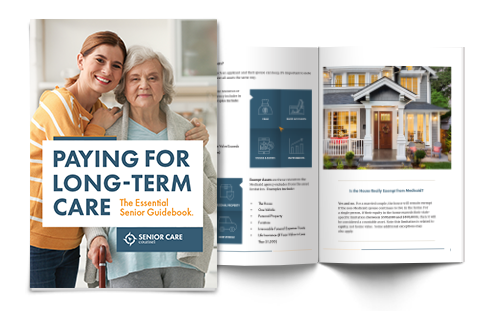Why Should You Establish a Trust?

Among the various tools available to plan for your long-term care, establishing a trust stands out as a versatile and powerful strategy. A trust offers unique advantages that can help you and your loved ones navigate the complexities of long-term care planning with greater confidence and peace of mind. Here are some reasons why you may consider establishing a trust.
1. Asset Protection
By placing assets into a trust, you can shield them from a future Medicaid spend-down. This is particularly beneficial if you may eventually pursue Medicaid eligibility to cover long-term care expenses in the future, as it allows you to preserve assets for yourself, your spouse, or future generations.
2. Control and Flexibility
A trust offers a high degree of control and flexibility over how your assets are managed and distributed. You can include detailed instructions regarding the use of trust funds for your care needs, ensuring that your wishes are followed even if you become incapacitated. Additionally, you can designate a trusted individual or professional trustee to oversee the trust and make financial decisions on your behalf, providing an added layer of protection and accountability.
3. Avoiding Probate
Assets held in a trust bypass the probate process, which can be both time-consuming and costly. By avoiding probate, your loved ones can gain quicker access to funds for your care needs without the delays and expenses associated with probate proceedings. This streamlines the distribution of assets and helps minimize unnecessary burdens during an already challenging time.
4. Preserving Inheritance
Establishing a trust allows you to preserve your assets and safeguard your intended inheritance for your heirs. By specifying how trust funds should be distributed upon your passing, you can ensure that your loved ones receive the support they need while protecting their inheritance from potential creditors, lawsuits, or other threats.
5. Tax Efficiency
Certain types of trusts, such as irrevocable trusts, offer potential tax advantages that can enhance your long-term care planning strategy. By transferring assets into an irrevocable trust, you may be able to reduce estate taxes and minimize the impact of income taxes on trust assets, maximizing the value of your estate for yourself and your loved ones.
By establishing a trust, you can create a comprehensive and personalized strategy that safeguards your finances for your future care needs. If you’d like to learn more about trusts and other solutions, tell us about your situation and we’ll connect you with a qualified professional who can help.
[FREE] GET OUR PLANNING GUIDE:
"Paying for Long-Term Care - The Essential Senior Guidebook"This guide takes a deep dive into the landscape of long-term care and how to pay for it without going broke, including the answers to your top questions surrounding Medicaid.
GET MY COPY
